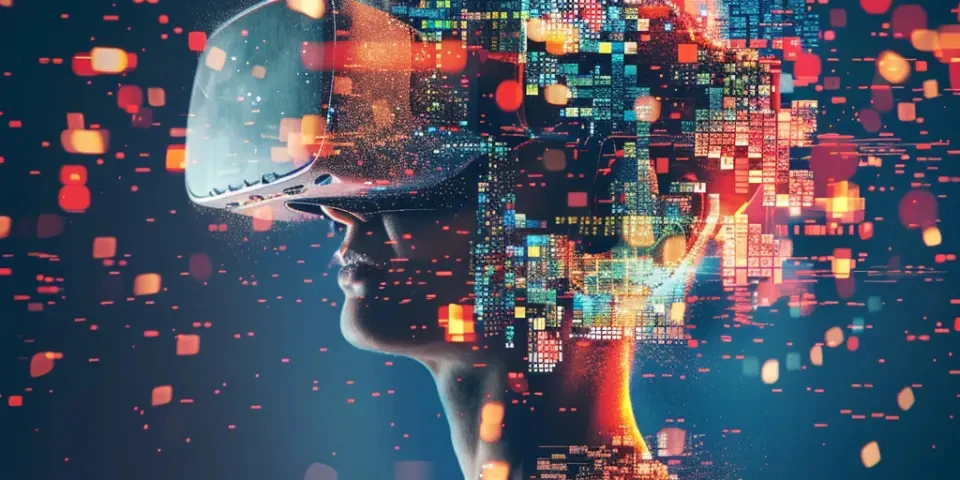AI in Healthcare Promising Innovations for Improved Diagnosis and Treatment
In recent years, artificial intelligence (AI) has emerged as a game-changer in the healthcare industry. With its ability to analyze vast amounts of data, identify patterns, and make predictions, AI has the potential to revolutionize diagnosis and treatment. In this article, we will explore the promising innovations that AI brings to healthcare, covering several key aspects.
1. Early Detection and Diagnosis
AI-powered algorithms can analyze medical images, such as X-rays, MRI scans, and mammograms, with remarkable accuracy, aiding in early detection of diseases like cancer. These systems can identify subtle patterns and anomalies that may be missed by human eye and help physicians make more informed decisions.

One example of such a tool is "CAD4TB," developed by Delft Imaging. CAD4TB uses AI to analyze chest X-rays and detect signs of tuberculosis, enabling early diagnosis and treatment initiation, particularly in resource-constrained settings.
2. Personalized Medicine
AI algorithms can analyze a patient's genetic makeup, medical history, lifestyle factors, and even social determinants of health, to develop personalized treatment plans. This approach can improve treatment outcomes by tailoring interventions to individual patients' specific needs.
IBM Watson for Oncology is an AI-powered platform that assists healthcare providers in formulating personalized treatment plans for cancer patients. By analyzing vast amounts of medical literature and patient data, Watson generates evidence-based recommendations, helping physicians make informed decisions for each patient.
3. Drug Discovery and Development
AI can significantly accelerate the drug discovery and development process by analyzing large volumes of biomedical data and identifying potential drug candidates. Machine learning models can predict the effectiveness of candidate drugs, potentially reducing the time and cost required for clinical trials.
Insilico Medicine, for instance, utilizes AI to identify new drug targets and accelerate the drug discovery process. Their proprietary platform combines deep learning with generative adversarial networks to design novel molecules that could be potential therapeutics.
4. Virtual Assistants for Healthcare Professionals
Virtual assistants powered by AI, such as voice recognition systems, can assist healthcare professionals in managing administrative tasks, accessing patient information, and delivering care. This technology allows doctors to focus more on patient care and spend less time on paperwork.
One widely used virtual assistant in healthcare is "Suki." It uses natural language processing and AI algorithms to capture and retrieve physician-patient conversations, extract relevant information, and generate clinical notes, saving clinicians valuable time in medical documentation.
5. Smart Monitoring and Predictive Analytics
AI-based monitoring systems can continuously collect and analyze patient data, such as vital signs and symptoms, to detect early warning signs of deterioration. Predictive analytics models can then forecast potential health problems, enabling timely interventions and improving patient outcomes.
Wearable devices like smartwatches equipped with AI algorithms can track various health parameters and provide real-time feedback to individuals. For example, the Apple Watch Series 6 uses AI to measure blood oxygen levels, alerting users to potential respiratory issues.
6. Improving Clinical Trials
AI can optimize the design and execution of clinical trials, enhancing efficiency and reducing costs. Machine learning algorithms can identify suitable patient cohorts, predict treatment responses, and facilitate data analysis, thereby expediting the development of new therapies.
TriNetX is a platform that leverages AI to connect researchers with aggregated clinical data from a global network of healthcare organizations, enabling faster patient recruitment and streamlined trial design.
7. Mental Health Diagnosis and Support
AI-based chatbot applications and virtual therapists can support mental health diagnosis and treatment, offering users a non-judgmental and accessible platform. These tools use natural language processing and machine learning algorithms to analyze user interactions and provide personalized support.
Woebot, for example, is an AI-powered chatbot that provides mental health support and cognitive behavioral therapy techniques to users. Through regular conversations, Woebot helps individuals manage stress, anxiety, and depression.
8. Ethical Considerations and Challenges
As AI becomes more integrated into healthcare, ethical considerations and challenges arise. Issues such as data privacy, bias in algorithms, and accountability need to be addressed to ensure responsible and fair implementation of AI technologies. Additionally, the potential impact on the doctor-patient relationship and the need for human oversight in critical decision-making processes need to be carefully considered.
While AI holds immense promise for improved diagnosis and treatment, it is crucial to strike a balance between technological advancements and the human touch in healthcare.
Frequently Asked Questions (FAQs)
1. Can AI completely replace doctors and healthcare professionals?
No, AI cannot replace doctors and healthcare professionals entirely. While AI can augment their capabilities and assist in decision-making, the human expertise, empathy, and ethical considerations provided by healthcare professionals are irreplaceable.
2. Are AI-driven medical devices safe to use?
AI-driven medical devices undergo rigorous testing and regulation to ensure their safety and efficacy. Regulatory bodies such as the FDA provide guidelines and approval processes for AI-based medical devices to ensure patient safety.
3. How can AI improve healthcare accessibility?
AI has the potential to improve healthcare accessibility by bridging geographic and socioeconomic gaps. Telemedicine platforms powered by AI can connect patients in remote areas with healthcare providers, and AI algorithms can aid in triaging patients, optimizing resource allocation, and reducing wait times.
References:
1. Delft Imaging: https://www.delft.care/solutions/detection/ 2. IBM Watson for Oncology: https://www.ibm.com/watson-health/oncology-and-genomics/oncology/ 3. Insilico Medicine: https://insilico.com/ 4. Suki: https://www.suki.ai/ 5. TriNetX: https://www.trinetx.com/ 6. Woebot: https://woebot.io/
Explore your companion in WeMate